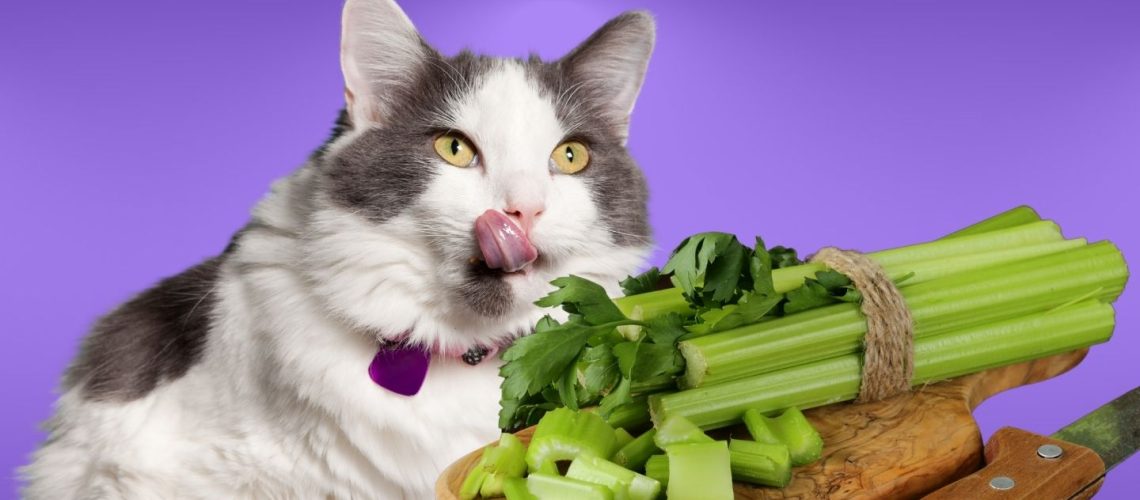The answer to the question "can cats eat celery?" is yes, but with some important considerations. While celery is not toxic to cats and can provide some health benefits, it should only be given to them in small amounts as a treat. Cats are obligate carnivores, which means their diet should mainly consist of animal-based proteins rather than plant-based sources. In this article, we will explore the nutritional benefits and potential risks of feeding celery to cats, as well as how to safely introduce it to their diet.
Nutritional Benefits of Celery for Cats
Vitamins and minerals found in celery
Celery is low in calories and high in water and fiber, making it a healthy snack for cats. It also contains vitamins and minerals that can support a cat's overall health, such as vitamins A and C, potassium, and folate.
Celery's high water content
The high water content in celery can help support your cat's hydration levels, especially if they are not drinking enough water on their own.
Fiber content
Fiber in celery can help improve your cat's digestive health, supporting regular bowel movements and preventing constipation.
Potential Health Benefits of Celery for Cats
Hydration support
As mentioned earlier, the high water content in celery can help keep your cat hydrated, which is essential for their overall health and well-being.
Digestive health support
The fiber in celery can aid in maintaining proper digestive function, supporting regular bowel movements, and preventing constipation.
Antioxidant properties
Celery contains antioxidants, such as vitamins A and C, which can support a cat's immune system and help fight off illness.
Risks and Precautions when Feeding Cats Celery
Digestive problems
While celery is not toxic to cats, it is not nutritionally balanced and can cause digestive problems if fed in large amounts.
Dental issues
The strings in celery can cause dental problems, such as getting stuck in your cat's teeth, if they are not removed prior to feeding.
Intestinal blockages
Ingesting the strings of celery can also lead to intestinal blockages if not removed beforehand, which can be a severe and potentially life-threatening issue.
Allergic reactions
Although uncommon, some cats may have an allergic reaction to celery. Monitor your cat closely for any signs of an allergic reaction, such as itching or swelling, and consult with a veterinarian if you notice any symptoms.
How to Safely Introduce Celery to Your Cat's Diet
Proper preparation of celery
Before offering celery to your cat, remove the strings and cut it into small, manageable pieces, no more than one inch in length.
Starting with small portions
Introduce celery to your cat's diet in small quantities, ensuring it does not exceed 3-5% of their daily energy intake.
Monitoring your cat's reaction
Keep a close eye on your cat's response to celery, and discontinue feeding it if you notice any adverse effects or if your cat seems uninterested.
Alternative Healthy Treats for Cats
Cooked lean meats
Chicken, turkey, and lean beef are excellent sources of protein and can be offered to cats as treats on occasion.
Canned fish
Canned fish, such as tuna or salmon, can add variety to your cat's diet and offer additional nutrients.
Commercially available cat treats
Opt for high-quality cat treats that are nutritionally balanced and specifically designed for your cat's dietary needs.
Consult with a Veterinarian
Importance of discussing dietary changes with a professional
Consult with a veterinarian before making any significant changes to your cat's diet, as they can provide tailored advice based on your cat's unique needs.
Tailoring your cat's diet to their specific needs
Your veterinarian can help you develop a comprehensive diet plan to ensure your cat is receiving the proper nutrients and meeting their overall health requirements.
Conclusion
In conclusion, while celery is not toxic to cats and can provide some health benefits, it should only be given to them in small amounts as a treat. It is important to monitor your cat's reaction to celery and consult with a veterinarian if you have any concerns. By practicing moderation and proper preparation, you can offer your cat a variety of safe and healthy treats to complement their regular diet. Always consult with a veterinarian before making any significant dietary changes to ensure your cat's unique nutritional needs are met.











